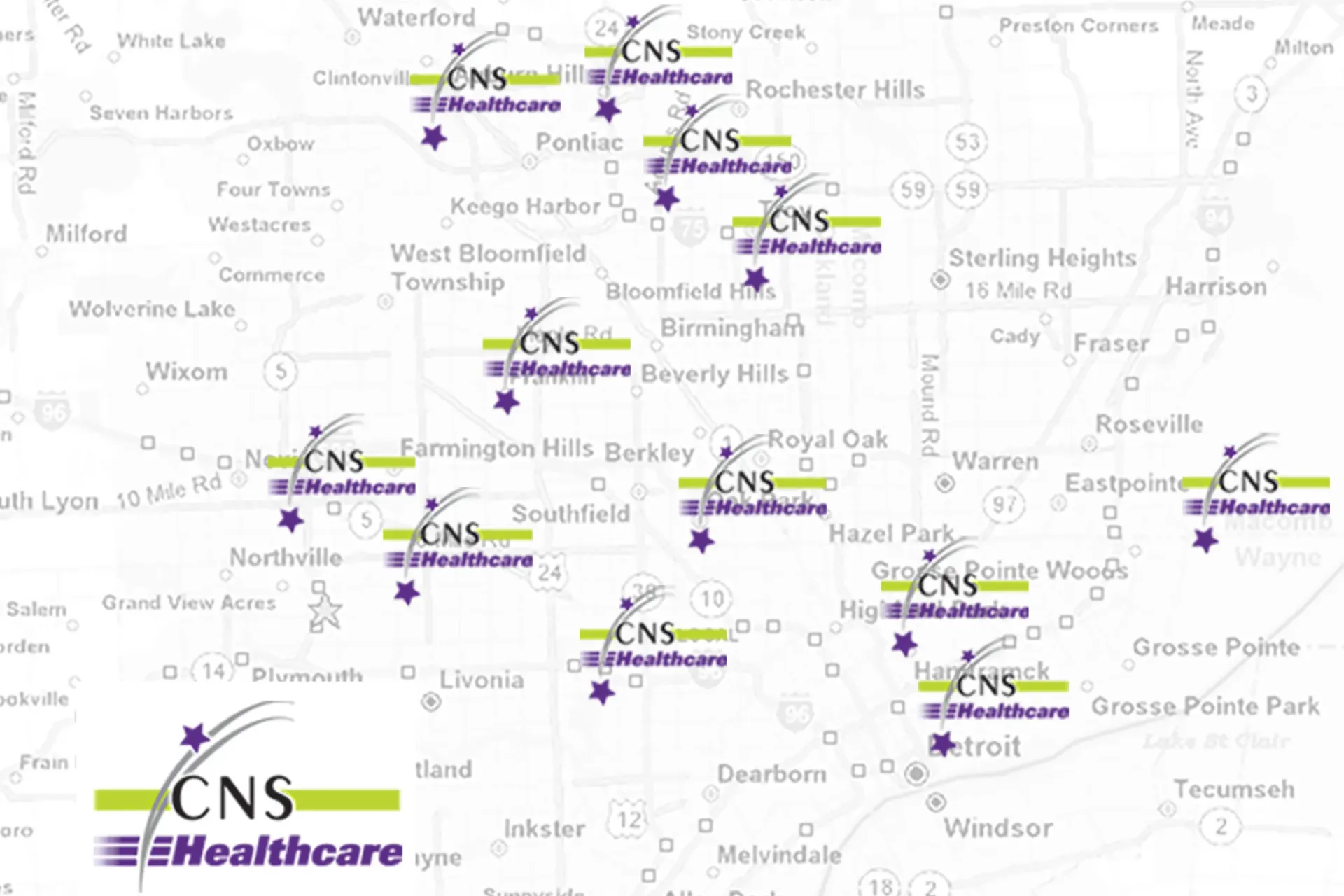Welcome to
CNS Healthcare
CNS Healthcare is a non-profit, Certified Community Behavioral Health Clinic (CCBHC) with seven clinics and three clubhouses in Southeastern Michigan. CNS employs approximately 400 professionals, paraprofessionals, and support staff, delivering services to more than 8,600 people annually.
How May We Help You?
CNS Healthcare is committed to advancing integrated mental and physical healthcare and eliminating stigma through advocacy, education, and community outreach. We empower all children and adults served to become active and productive members of their communities.
Rapid Access Mental Health Services
CNS Healthcare Rapid Access helps you get care fast. These services offer same-day or walk-in appointments at three of our locations. You can find support for anxiety, depression, suicidal thoughts, or psychosis without waiting weeks.
- Services include peer support, nursing services, medication management, and crisis planning and support.
- No referral needed.
- Affordable options are available for uninsured patients.

Get Involved
We offer meaningful opportunities for individuals and community organizations.

























